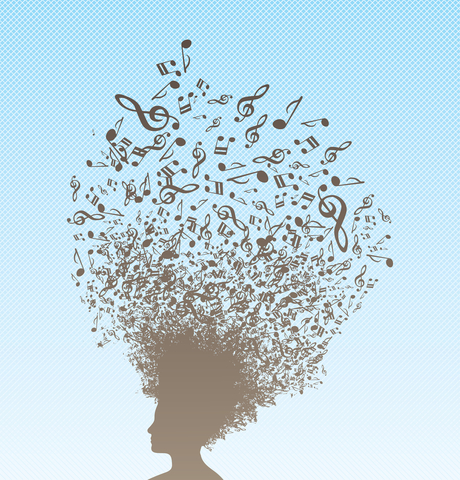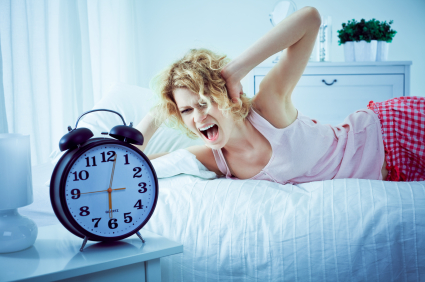If music be the cure…
of the blues, play on!
 I went back into the archives to pull up this post from two years ago and it occurred to me that music can pretty much pull me out or put me into mood. It’s pretty fascinating, isn’t it, that a few notes on a page translated by a musician’s ear and fingers can manipulate the brain. But, what about the brain on menopause?!
I went back into the archives to pull up this post from two years ago and it occurred to me that music can pretty much pull me out or put me into mood. It’s pretty fascinating, isn’t it, that a few notes on a page translated by a musician’s ear and fingers can manipulate the brain. But, what about the brain on menopause?!
It’s widely accepted that depression affects as many as 20% to 40% of women during menopause. However, what’s also true is that gender differences in depression evidently begin well before the menopause and women are 1.5 to 3 times likelier than men to report a lifetime history of depression. Moreover, these distinctions start as early as the teen years and continue until the mid 50s, a time that corresponds to female reproductivity. Still, hormones are only one factor and mood can also be affected by stress, family life, general health issues, a lack of exercise and genetics. Moreover, research has shown that how women perceive the effect of menopause and its symptoms on their physical health can significantly affect whether or not they develop depression at the start of the ‘pause.
One thing that is fascinating about depression is while drugs have long been considered first line therapy, other alternatives, such as physical activity, have been shown to alleviate depression to a certain extent or at the very least, boost the effectiveness of pharmaceuticals. Listening to music may also be beneficial.
There are several theories behind the use of music in healing. One is that the slower, homeostatic rhythm of music slows down any elevated body rhythms. Another is that music actually alters psychological responses so that health outcomes, like depressed mood, are improved.
However, is there any muscle behind the claims that music can heal? A study appearing in Complementary Therapies in Medicine in 2011 suggests it can. When researchers scoured nine databases, they identified data from 9, scientifically sound studies that enrolled participants in a wide range of ages from 18 to 95 years. And while there was no rhyme or reason the the duration of each listening session (30 to 60 min) or frequency of listening (2 to 3 times a day to once a week), nor was there a consistency between type of music listened to, 11 studies showed the listening to music improved depression and some demonstrated significant improvements, with scores improving by as much as 47% after 4 months. In some trials, improvements were seen as early as two weeks. Moreover? These improvements were measured by several different validated scales and were not based solely on participant recall.
More recently, evidence culled from multiple scientific reviews demonstrates that music therapy is clearly effective for relief of depressive symptoms, improved mental health and less anxiety. The underlying premise is that the beauty and rhythm of the music tone helped the patient to be comfortable. More importantly unlike drug therapy, no adverse effects were associated with music therapy nor were any harmful ‘phenomenon’ observed.
While the studies did not necessarily examine music type, one compared the difference between rock and classical and found positive results in mothers who had become withdrawn. Others showed that having a choice helps; here, the researchers point out that choice helps the body to adapt and adopt musical patterns because the “listener is more in-tune” with preferred music.” (Pun intended!)
Clearly, there are distinctions between the data drawn from these studies which makes it impossible to draw any firm conclusions. At the same time, there is enough evidence to support the role of music as therapy in mood disorders. For me, a dose of prevention is worth a pound of cure. And this is the type of prevention that’s just ‘music to my ears!’
If music be the cure of mood, play on.
Read MoreDepression: the silver lining
I’ve written about depression quite a bit on Flashfree. Not only is age a risk factor among women (with the highest reported levels in women between the ages of 40 and 49) but, the risk of depressive symptoms may be as much as three times higher among women across the menopausal years compared to women who have not yet reached menopause. Moreover, the risk may be more than twice as likely among women who’ve never had depression previously.
However, there is a silver lining: researchers are reporting that in some women, particularly those who experience depressive symptoms for the first time around the time of menopause, depression will eventually dissipate over the eight years following the final menstrual period. In fact, this was proven true in over 200 women whose symptoms were evaluated over a 14 year period around menopause. In this group, depression scores were significantly higher the 10 years before their final period and then decreased roughly 12% per year after their final menstrual period. For women with a history of depression, the odds were not quite as favorable; these women were 13 times likelier to develop depressive symptoms around menopause, and may be as much as 8 times likelier than other women to have recurrences of the blues in the years following the final menstrual period.
The researchers note that women who have greater variability in their levels of FSH — follicular stimulating hormone — may be more likely to develop depressive symptoms during menopause. However, the quicker that these levels change, the more likely a woman is to move past the depression as she gets further into menopause.
The old adage, ‘this too, shall pass,’ may be quite true when it comes to depression during menopause. For women whose history overrides the FSH factor, a reduction in stress, psychotherapy, low doses of SSRIs and a boost in physical activity may help to keep things in balance, especially overall wellbeing.
Read MoreWednesday Bubble: Depressed? It may be high testosterone
As I’ve written previously, depression and hormonal imbalance go hand in hand as much as love and marriage, babies and carriages, and yin and yang. As many as 40% of women are affected by depression during menopause, but there are other factors that come into play, including gender (women are 1.5 to 3 times likelier than men to report a lifetime history of depression), stress, family life, general health issues, a lack of exercise and genetics. Moreover, research has shown that how women perceive the effect of menopause and its symptoms on their physical health can significantly affect whether or not they develop depression at the start of the ‘pause.
I’ve got one more factor to add to the mix: testosterone. Findings reported at this week’s International Federation of Fertility Societies/American Society for Reproductive Medicine meeting suggest that when it comes to depression in menopause, high testosterone levels may be at-play, at least in Caucasian women.
Among 400 women studied over 14 years (who were 35 to 47 when the study began), 76% had a history of depression. Still, researchers say that this history did not appear to affect the relationship between high testosterone levels and depression scores; in fact, Caucasian women with the highest testosterone levels were 27% more likely to have depression than women who had the lowest levels. In fact, when considered in totality, each jump to the next measure of testosterone levels (four in all) increased the risk of depression by 14%.
Importantly, the researchers did not see the same increase in depression among African-American women. Rather, African-American women with the highest testosterone levels were 26% less like to have depression.
There is no indication of the reasons why testosterone affects mood in Caucasian versus African-American women. However, it’s important that we have another piece of the puzzle. Take note: if testosterone patches ever make it to market in the U.S., women with preexisting depression may want to step back before hopping on that bandwagon.
Read MoreSleep and menopause – going ‘pausal
When was the last time you got a full night’s sleep? A full 8, glorious hours of zzz’s?
Bet you can’t remember.
When was the last time you went ‘pausal™?
Bet you can remember!
It seems that I can’t stop writing about sleep on Flashfree. Additionally, it appears that I continue to write about depression. And the link; it’s more common than you may imagine.
Let me break it down for you: not only does a third of the population have sleep problems, but, by the time midlife and menopause come along, it’s not out of the range of probabilities that women alone comprise that third. Okay, I exaggerate but I am sure that you can understand where I’m going here.
A number of factors affect sleep, including marital status, general health, lack of exercise and caffeine and alcohol. However, according to a recent study in Sleep Medicine, psychological factors rank amongst the highest. In fact, when researchers assessed self-reported information from almost 150,000 women enrolled in the famous Women’s Health Study, they found that the better that women felt in terms of emotional wellbeing and calmness, the better their sleep. On the flip side? Of all the factors potentially associated with the reverse, i.e., severe sleep disruption, the biggest culprits were:
- feeling restless during the day
- depression or poor emotional wellbeing
- general symptoms of feeling poorly (bloating, clumsiness, stomach issues, dizziness, back pain, nausea)
Moreover, these factors did not need to reach the level where they would have been associated with established psychiatric disease. And, they were most closely associated with wakening earlier than expected and then trying to fall back asleep.
Depression is fairly common in midlife, with as many as 40% of women who are in menopause going through some sort of blue period. Anger and hostility, and the inability to express both, can also contribute to depressive symptoms, as can discontent and resentment. This menopausal rage appears to affect many women and may be related to hormonal shifts, especially in perimenopause when imbalances and extremes occur. The key appears to be finding ways to reinstate balance, both inward and outward, which means working through hormone issues and personal issues with a licensed health professional or professionals while also maintaining regular physical activity and surrounding oneself with things that help boost an overall sense of wellbeing.
If you look at the list above, the largest culprits in general insomnia appear to be controllable. Start keeping regular tabs on the following:
- Am I constantly feeling angry?
- What appears to ‘set me off?’
- Do I feel blue?
- Do I feel as though my life is out of control?
- Am I feeling achy, sick, blah most of the time?
- Am I falling asleep and awakening? How often am I able to get back to sleep
- How’s my diet? My physical activity?
It can be difficult to discern the forest from the trees when you are caught up in the daily grind and the emotional rollercoaster of life. Add hormones to the mix and it’s a veritable ‘going pausal™’ waiting to happen. However, take comfort in knowing that you are not alone and there ARE solutions. You simply need to find the best ones for you. Start small and aim big. You may stop counting sheep and dreaming about them again before you know it.
Read MoreDepression: Walking the Walk
I’m always on the look out for evidence-based alternatives to drug therapy — not because I believe that drugs are bad — but because I believe that sometimes there are safer ways to manage certain conditions, ways that may minimize side effects or interactions. Moreover? We are a society that relies on a quick fix and sometimes, that quick fix brings on a host of other issues.
Depression and hormonal imbalance go hand in hand as much as love and marriage, babies and carriages, and yin and yang. As many as 40% of women are affected by depression during menopause, but there are other factors that come into play, including gender (women are 1.5 to 3 times likelier than men to report a lifetime history of depression), stress, family life, general health issues, a lack of exercise and genetics. Moreover, research has shown that how women perceive the effect of menopause and its symptoms on their physical health can significantly affect whether or not they develop depression at the start of the ‘pause.
When you think ‘depression,’ you probably think melancholy, sadness, feeling blue and out of sorts. But depression can also affect working memory and bring on persistent negative moods, which may not be easily resolved by drugs alone or by behavioral/psychotherapy alone. Consequently, being aware of alternative strategies may be helpful for some people. That’s why I was so intrigued by the concept of Attention Restoration Therapy (ART).
ART examines attention and divides it into two parts:
- Involuntary attention, in which our attention is somehow captured by some sort of stimulus that stands out
- Voluntary or directed attention, which is directed by specific mental processes and intellect
According to ART (which is backed and validated by scientific research) interacting with certain types of environments can promote or invoke involuntary attention; this allows our directed attention a replenishing respite, one that people with depression, who incidentally are more likely to be mentally and attentionally fatigued may benefit. Natural environments in particular, have been shown boost this attention shifting process in healthy individuals. More importantly, a small study that appears in the Journal of Affective Disorders shows that the same benefits may be obtained by clinically depressed persons. In fact, when both women and men were asked to take a 50 to 55 minute walk in an aboretum or an urban setting and deliberately asked to ruminate on a painful memory, they still scored higher on cognitive and attentional testing. After a second walk in an entirely different setting, nature walks were shown to boost both memory and mood.
Mind you, researchers still don’t know how long lasting the effects of nature are on depression, and if it matters if the person actually lives most of the time in a rural or urban setting. However, it does appear that when it comes to depression, walking the walk, especially if it’s in a natural setting, may boost mood and functioning and give attention a much needed rest.
Read More









